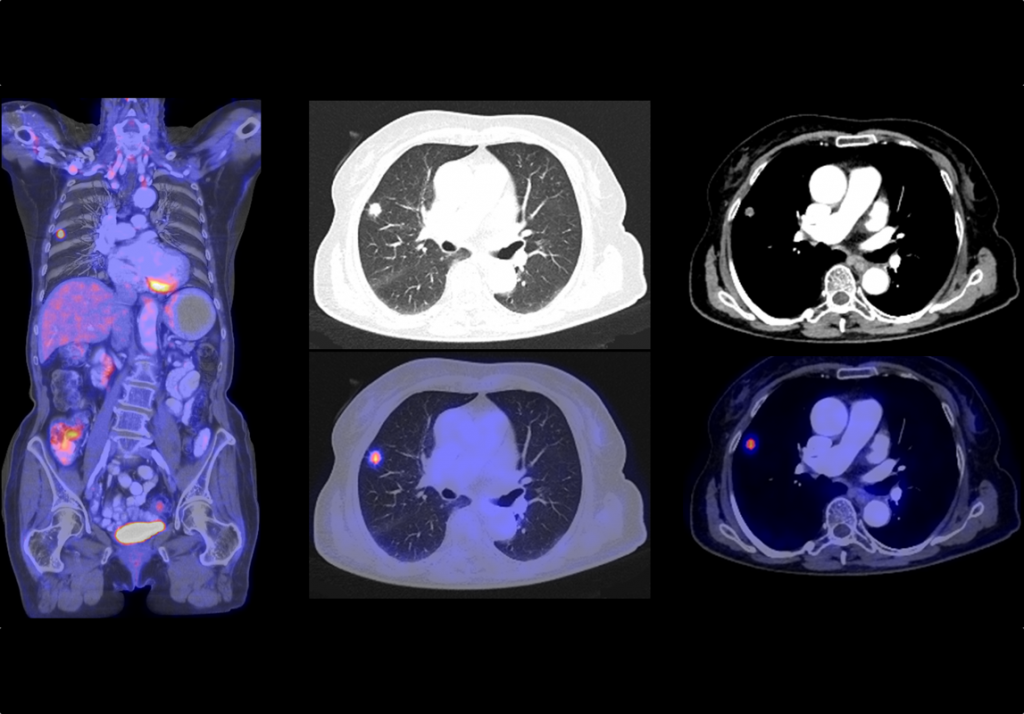In the week in which NHS England struck a pose as opponents of the compulsion to put services out to tender its junior officials were stonewalling questions from Oxfordshire campaigners angered at the imposition of a private contract for a high tech cancer scanning service.
The Banbury Guardian was the first to run the news that a 7-year contract to run Positron Emission Tomography (PET-CT) scanning services for the Thames Valley population (Oxfordshire and Buckinghamshire) had been awarded by NHS England not to the world-renowned experts at Oxford University Hospitals Trust, but to a private company, InHealth, that few will have heard of.
The OUH bid, backed by a large team led by a professor of nuclear medicine, failed to convince the management consultants (Arden GEM Commissioning Support Unit) running the procurement exercise on behalf of NHS England.
One consequence could be that the service will not be provided in the headquarters of the Trust’s highly specialised cancer team at Oxford’s Churchill Hospital, but elsewhere, in what one group of GPs have argued are “inappropriately converted buildings”. This is likely to mean additional travelling and discomfort for patients
It could potentially also mean Churchill based staff might have to be relocated, since in a bizarre echo of Chris Grayling’s disastrous effort to contract out post-Brexit ferry services to a company with no ferries, it’s been suggested that InHealth does not have the specialist radiographers necessary to deliver the service for which they have just been contracted.
To make matters even worse, NHS England failed to answer questions about the contract posed by the Banbury Guardian, but directed them to a web page referring to a defunct consultation that began and ended in 2016.
More digging reveals that the procurement of the PET-CT contract dates back to 2017, and the Thames Valley contract is one of 11 covering various areas of England, including three in London.
This procurement follows an earlier 10-year national contract that was initiated by the disaster-prone East of England Strategic Projects Team (which has since been disbanded, apparently handing the baton to the Arden GEM CSU).
At that stage the contract to provide PET-CT scanning services across 30 locations in England was won by the Collaborative Network headed up by Alliance Medical, a multinational corporation working with The Christie NHS Foundation Trust and some academic institutions: but this decision was not without controversy.
Concerns were raised by BuzzFeed News that in the 12 months prior to the deal two senior NHS bureaucrats were recruited by Alliance Medical, the Department of Health’s “imaging technical lead” Phillip Webster and an NHS England “collaborating commissioner for PET-CT scanning” Mike Saunders. The fear was that this had given the company an edge.
BuzzFeed also revealed that any new scanners bought as part of the deal “will belong to Alliance Medical, not the NHS”.
Suspicions were also aroused by the fact that while the tender had been issued for four separate contracts, Alliance Medical was awarded all four.
In Stoke on Trent the Royal Stoke University Hospital unsuccessfully challenged the decision to award the contract to Alliance Medical in preference to a bid from the local Trust and two other NHS Trusts that would have been £7m cheaper over 10 years.
More political pressure was needed for the successful fight against threats that the new service would mean Stoke patients having to travel for scans to Crewe, Birmingham or Liverpool, despite a modern scanner having been installed in their local hospital, largely funded by local donations.
Since then Alliance Medical, which secured itself a monopoly control of production of the isotopes used in the new scanners, has itself been bought up by a South African private hospital group Life Healthcare.
InHealth, which lost out on that contracting round to Alliance Medical, has been in business for 15 years and employs around 1,700 people, including clinical specialists and patient referral teams. Its services are provided from over 350 locations in the UK and Ireland, and they work with a significant majority of NHS Trusts in the UK covering over 200 hospitals and over 80 community health clinics.
But questions will continue to be asked on how they have been awarded the Oxford contract, why none of the NHS bodies in Oxfordshire were listened to, and whether patients will get the accessible, high quality service they would have received if the scanner was based in the existing NHS unit.
With a blanket of total secrecy surrounding this contract, and no news at all of the other 10 contracts tendered at the same time, this story has more chapters to come.
Dear Reader,
If you like our content please support our campaigning journalism to protect health care for all.
Our goal is to inform people, hold our politicians to account and help to build change through evidence based ideas.
Everyone should have access to comprehensive healthcare, but our NHS needs support. You can help us to continue to counter bad policy, battle neglect of the NHS and correct dangerous mis-infomation.
Supporters of the NHS are crucial in sustaining our health service and with your help we will be able to engage more people in securing its future.
Please donate to help support our campaigning NHS research and journalism.


